New Delhi: In Kailash Colony, a modern three-storey building could easily pass for an upscale wellness center. Instead, it’s MaxPetZ, a state-of-the-art pet clinic. The first floor welcomes visitors with aisles of premium pet food and essentials, a pharmacy, a spacious grooming room, and a dedicated area for hydrotherapy and physiotherapy. The second floor houses specialised OPDs for dogs, cats, and exotic pets, as well as a dedicated eye-care unit. On the top floor, there are glass-divided surgical suites, CT and MRI facilities, and in-patient accommodations for up to 15 pets—all highlighting the advancements in pet healthcare.
Pet healthcare has evolved from basic veterinary services into a thriving industry offering advanced medical care, diagnostics, and therapies. Clinics like MaxPetZ exemplify this shift, focusing on holistic animal wellness and reflecting the growing role pets play in our families and lives.
Take Ananya, for instance, a proud “mother” to five pets—two dogs and three cats.
Ananya (who goes by her first name) has chosen to be childfree but pours her love into her furry family. “They are my babies, and I want to ensure they’re healthy both physically and mentally,” she said to ThePrint. For her, veterinary care isn’t just about vaccines or emergencies, but about proactive and preventive care.
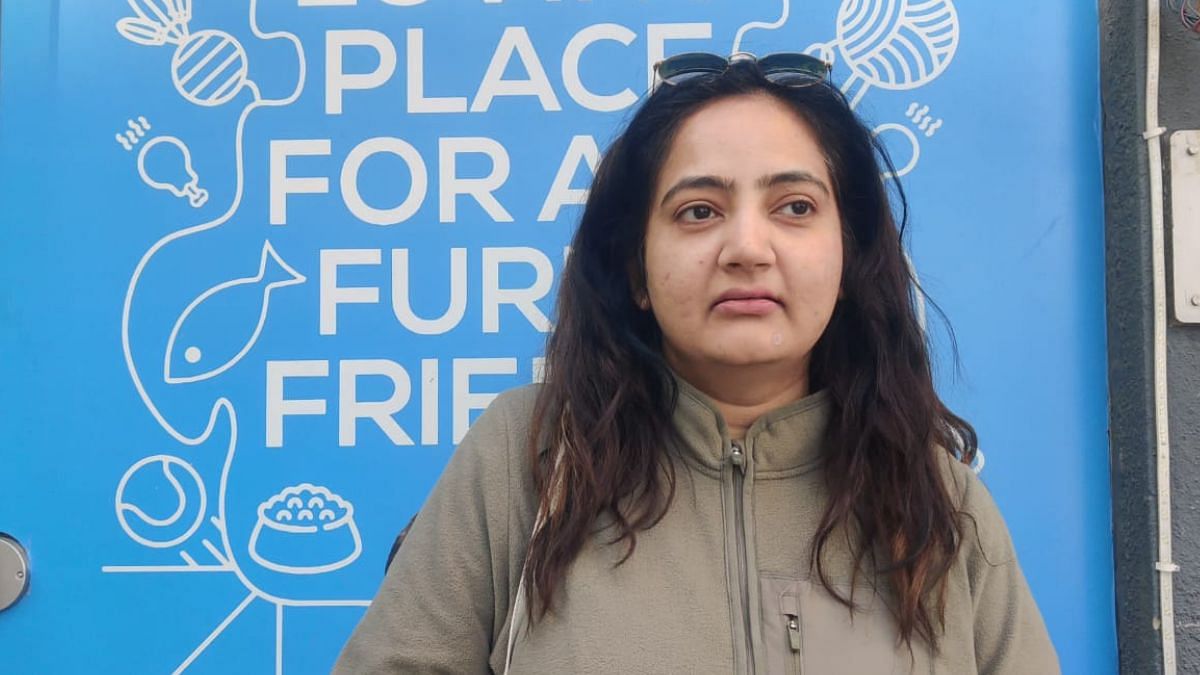
It’s why on a busy Wednesday morning, she makes the time to take her 13-year-old cat Poppins for a routine check-up, to SJ’s Pet Care and Clinic in Gurugram, another upscale clinic.
According to Ananya, Dr Shally Mattoo Jalali, who runs SJ’s, provides exceptional care and attention to her pets, often going beyond the standard treatment. “Dr Jalali is an excellent surgeon, and the clinic’s in-house testing lab and grooming facilities save me the hassle of running around for diagnostics and other services,” she said.
Located in a multi-storeyed complex in Gwal Pahari, Sector 56, Gurgaon, SJ’s features a fully stocked pharmacy—including homeopathic medicines—alongside pet food, in-house lab for tests like X-ray, ultrasound, a big grooming room, one operation theatre and dedicated wards for pets, including a separate one for animals requiring extra care.
With a team of 20–25 staff members and four doctors, the clinic operates two OPDs, providing comprehensive care under one roof.
Dr Jalali, the force behind SJ’s, brings over a decade of experience to her work. She began her veterinary journey as a rural veterinary officer, zila parishad in a government hospital in Balachaur, Punjab, before moving to Delhi, where she played a key role in establishing the CGS, an emergency pet care hospital in 2010, with a particular focus on feline care.
“There weren’t many people in the field when I started,” Dr Mattoo Jalali said to ThePrint.
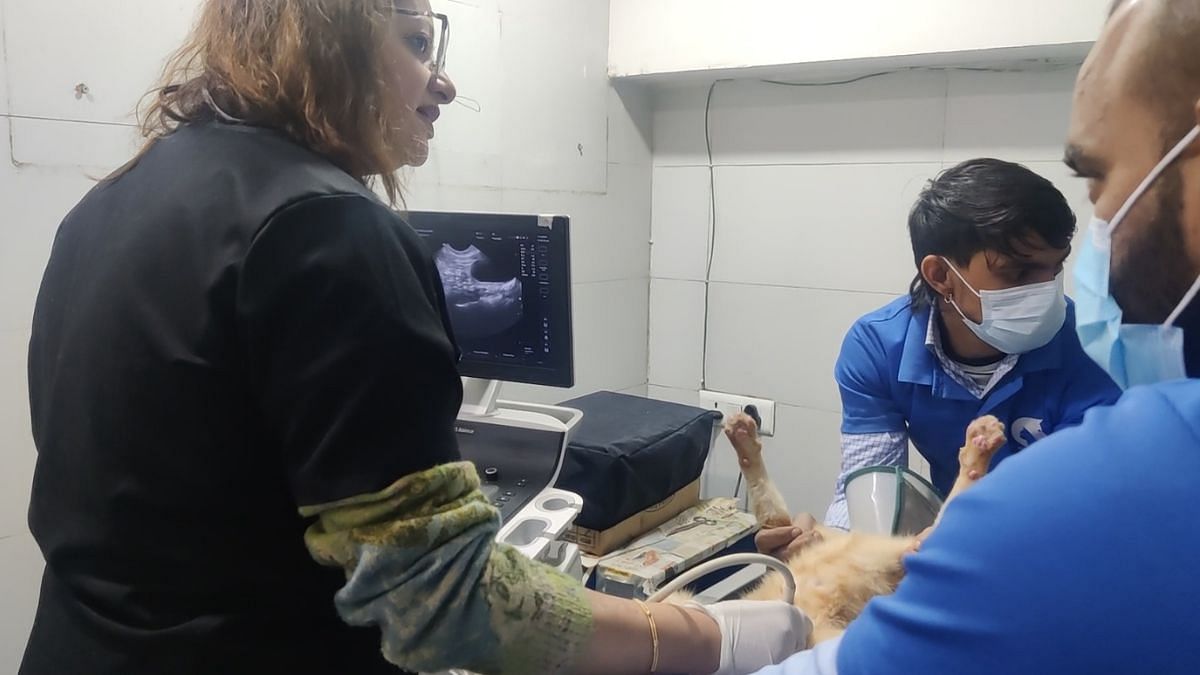
Her career has been shaped by diverse experiences, including two years at the NGO “Krishna Ashram”, where she cared for around 300 stray animals with the help of a small team. She later joined Dr Batra’s Veterinary Hospital, where she gained valuable experience in treating pets with homeopathic medicine. In 2015, she took the leap to start her own clinic.
Today, her clinic handles a wide range of procedures, including sterilisations, tumour removals, orthopaedic surgeries, amputations, and soft tissue surgeries. “We can perform almost 80 percent of surgeries, from foreign body removals to major operations,” she said, adding that while her clinic is well-equipped for most major procedures, advanced surgeries remain a challenge due to infrastructural limitations.
Another pet parent, Himalaya Gupta, brought his one-and-a-half-year-old female dog, Bella, to MaxPetZ and described the clinic as a “one-stop solution”. “I don’t have to run around for CT scans or blood tests—it’s all available here,” he shared. Bella, diagnosed with Ehrlichia canis (a bacterium causing ehrlichiosis in dogs, transmitted through infected brown dog ticks), was referred to MaxPetZ by another clinic. “We were told that only MaxPetZ could help now,” he added. Months later, Bella is under medication but doing well under their care.

Meanwhile, another pet parent, who preferred to remain anonymous, sat anxiously in the waiting area while their dog was being treated in the ICU. “Though it’s expensive, this is the only clinic offering 24/7 multi-specialty care,” they said. “Just like with humans, we want the best treatment and multi-specialty facilities for our pets, which is why we choose clinics like this over others.”
The growing demand from upwardly mobile pet parents has led to a rise in upscale vet clinics offering advanced care.
Large veterinary chains are stepping in with expansive networks across India. Brands like MaxPetZ, Zigly, Vetic, and Cessna are leading the charge and reshaping pet care, offering high-end facilities designed to meet the demands of modern pet owners.
“Earlier, most practices were single-room set-ups with just a doctor, a table, and no computers—only injections and basic care,” said Dr Pawan Kumar, CEO of Cessna, a leading veterinary chain with clinics in Delhi NCR, Bengaluru, and Mumbai. “But over time, we’ve revolutionised the field by introducing specialised, multi-vet practices, significantly advancing small animal and veterinary health in India.”
Also read: World association suspends Delhi Zoo for 6 months over case of ‘chained’ African elephant Shankar
Modern advancements, more opportunities
India’s veterinary landscape is witnessing significant growth and recognition, both in terms of infrastructure and perception as a profession. According to Statista, a global data and business intelligence platform, the country had over 12,000 veterinary hospitals and polyclinics in the financial year 2022, alongside approximately 68,000 veterinary institutions, including numerous aid centers and dispensaries.
As of 31 March, 2023, the Veterinary Council of India (VCI)—a statutory body established under the Indian Veterinary Council Act—reported 81,938 registered veterinary practitioners nationwide. Additionally, the Ministry of Fisheries, Animal Husbandry, and Dairying noted in the Rajya Sabha in March, 2023, that India currently has 70 veterinary colleges offering bachelor of veterinary science and animal husbandry (BVSc & AH) courses, reflecting the growing emphasis on formal education in this field.
Dr Pawan Kumar highlighted the evolving perception of veterinary science as a respected and sought-after career option. Once overshadowed by MBBS, veterinary medicine is now gaining prominence, with more students choosing it over traditional medical courses, he said.
Sharing his own journey, Dr Kumar recalled how he initially aspired to become an MBBS doctor but eventually found his passion in veterinary science.
He also observed a significant shift in gender dynamics within the profession. “During my time, my class of 44-45 students had only five women,” he said, adding that today, the ratio is steadily balancing out.
Dr Bhanu Dev Sharma, who specialises in cardiology and diagnostics at MaxPetz, emphasised the parallels between veterinary medicine and paediatric human medicine, noting the shared focus on treating patients who cannot verbally communicate their symptoms. He attributed the increasing interest in veterinary science among the younger generation to greater awareness about the profession and the expanding opportunities it offers. Compared to 20-30 years ago, the field has become much more appealing, with modern advancements and societal shifts contributing to its rising popularity, he said.
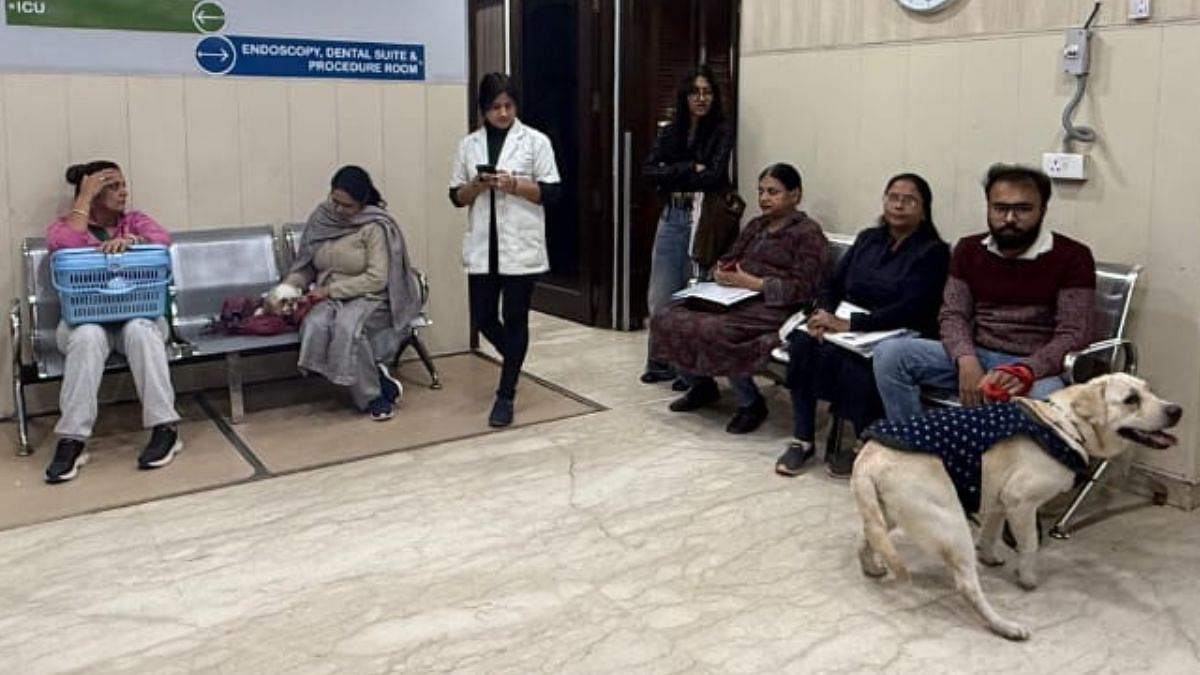
Senior veterinary doctors highlight how salaries, too, have increased over time. Earlier, they ranged from Rs 10,000 to Rs 20,000 per month, but now fresh graduates or postgraduates earn up to Rs 40,000 per month as a starting point, with the potential to reach several lakhs depending on specialisation and experience.
“At Cessna, we have professionals earning well over Rs 2 lakh, even Rs 2.5 lakh,” said Dr Kumar.
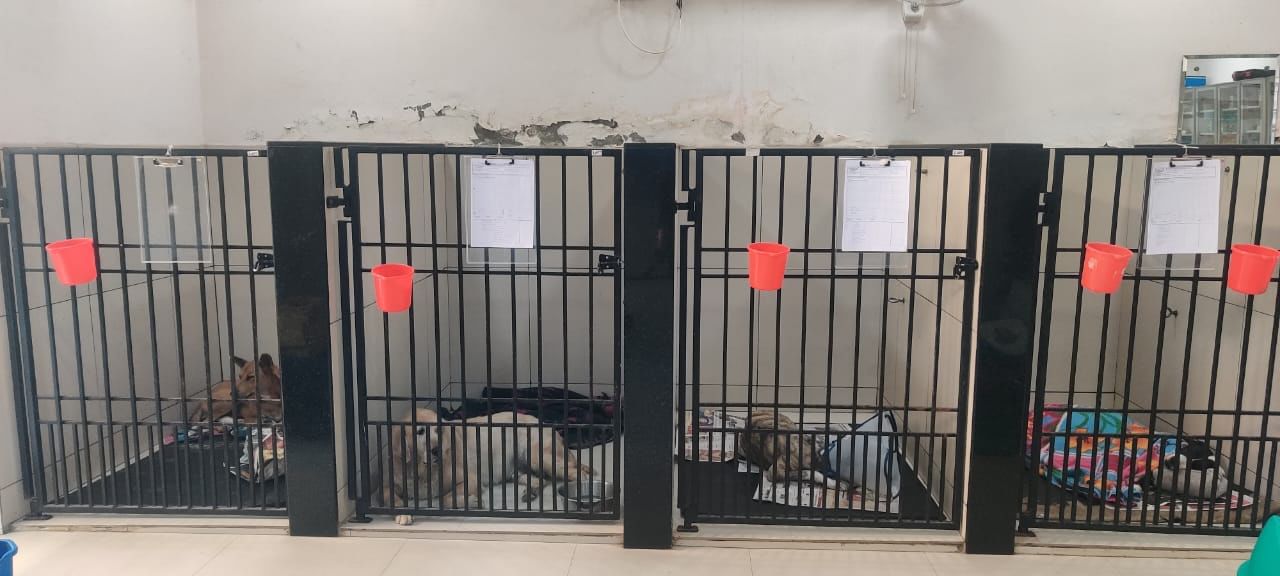
For 28-year-old Dr Mitali Singh, a deep love for animals inspired her to pursue a career in veterinary sciences. She earned her bachelor’s degree in veterinary sciences in 2019 and completed her master’s in 2021. Currently, she works at Cessna, Gurugram, as a veterinarian specialising in general medicine, ultrasonography, cardiology, and exotic pet care.
One-stop shop experience
MaxPetz clinic at Kailash Colony offers a comprehensive range of services, including a fully stocked pharmacy, a pet shop, three OPDs (one dedicated to exotic pets like rabbits, turtle, guinea pig), as well as specialised care in eye, skin, and dental treatments.

The clinic also provides laparoscopy, X-ray and ultrasound diagnostics, physiotherapy, echocardiography and hydrotherapy. Additionally, it features two operation theatres, an isolated ward for pets with communicable diseases, inpatient wards, and a small blood bank.
The consultation fee at these clinics ranges from Rs 600 to Rs 2,500, based on the specific consultation required, such as cardiology or other specialties.
With a dedicated team of 105-110 staff members and 28 doctors working in shifts, the clinic ensures seamless operations and specialised care for all pets.
“Our tertiary care set-up and super specialty services is what makes us stand out from the rest in the chain. We introduced hydrotherapy and performed the first total hip replacement surgery for pet dogs in the country,” says Dr Bhanu Dev Sharma of MaxPetz.
MaxPetz was founded in 1952 as Dr Sharma’s Clinic by Sharma’s grandfather. Following the merger with PetZone, which had clinics in Goa and Mumbai, the clinic rebranded itself as MaxPetz, expanding its reach and services.
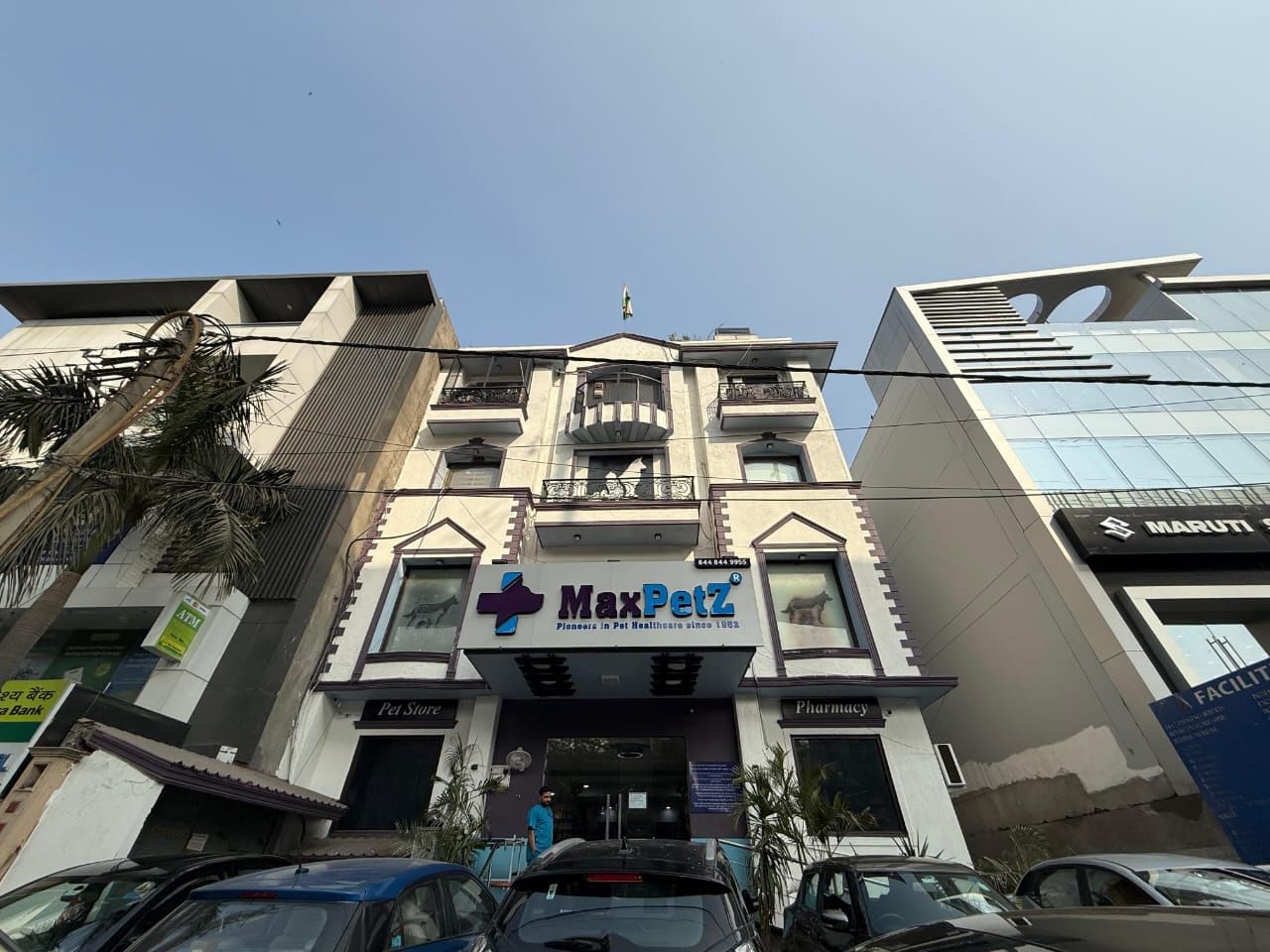
In just two years, Vetic, another veterinary chain, has established over 40 pet healthcare centres across 11 cities, including Delhi NCR, Mumbai, Bengaluru, and Pune. Their state-of-the-art clinics offer a comprehensive range of services, from in-house diagnostics like blood tests, biochemistry tests, biopsies, and endoscopies to advanced surgical procedures, making them a one-stop destination for pet healthcare.
Also read: Delhi’s animals dying of heat stress, thirst—dogs bleeding through their noses, cats panting
What’s driving this growth
According to Dr Kumar, the rapid growth of the pet healthcare industry is driven by two key factors: advancements in technology and a significant shift in the client base. “The role of pets in households has evolved dramatically,” he explained.
“What used to be a guard dog kept outside the house became a pet, then a family member. With this shift, pet owners became ‘pet parents’, leading to higher expectations for better facilities, advanced diagnostics, and superior care to ensure a longer, healthier life for their pets.”
His Cessna Lifeline is one of the leading veterinary chains offering specialised treatments such as oncology, orthopedics, and advanced imaging. The chain also provides cutting-edge equipment like incubators and oxygen control machines for pets, positioning itself as a pioneer in high-end veterinary care.
“Many other facilities lack advanced diagnostic tools, so we often see patients coming here for X-rays, ultrasounds, or specialised blood tests,” explained Dr Mitali Singh of Cessna Veterinary Clinic in Gurugram.
Meanwhile, Dr Bhanu Dev Sharma highlights the generational changes as a key driver of this transformation in pet care. With the number of pets steadily increasing, he notes that many young, double-income households, especially those without children, now consider their pets as family members—or even as their children. This societal shift has led to a rise in pet ownership and a growing desire among pet parents to provide the very best for their furry companions, going to great lengths to ensure their pets receive top-tier care and attention.
While these modern, upscale clinics offer advanced care, the costs can be significant. A CT scan ranges from Rs 15,000 to Rs 20,000, while a single session of physiotherapy or cardiotherapy costs between Rs 1,500 and Rs 2,000.
Grooming services, for example at a Vetic clinic are packaged under plans like “Pet Prime”, priced at around Rs 2,999, which includes four spa baths along with additional benefits. The clinic also offers a vaccination package for Rs 2,999, which includes four vaccinations and additional perks. For ongoing care, there’s an annual physiotherapy package for Rs 10,999.
According to Bloomberg Intelligence’s Pet Economy Report 2023, the global pet industry is poised for remarkable growth this decade, driven by increased spending from pet owners and the longer lifespan of pets. Valued at $320 billion currently, the report projects the sector could reach nearly $500 billion by 2030. Meanwhile, India’s pet care industry is on a similar trajectory, with estimates predicting it will grow to Rs 2,10,000 crore by 2032.
Cosmo First Limited, a four-decade-old global business organisation, operates multiple entities, including Cosmo Films, Cosmo Specialty Chemicals, Cosmo Plastech, Cosmo Sunshield, and the Cosmo Foundation. In September 2021, the company ventured into pet care with the launch of Zigly, an Indian pet care company that integrates veterinary care, grooming, pet retail, and behavioural training under one roof. While the basic consultation charges at Zigly start with Rs 499, it also varies from process to process, like the dental scaling starts from Rs 10,000 and neutering package starts from Rs 14,500.
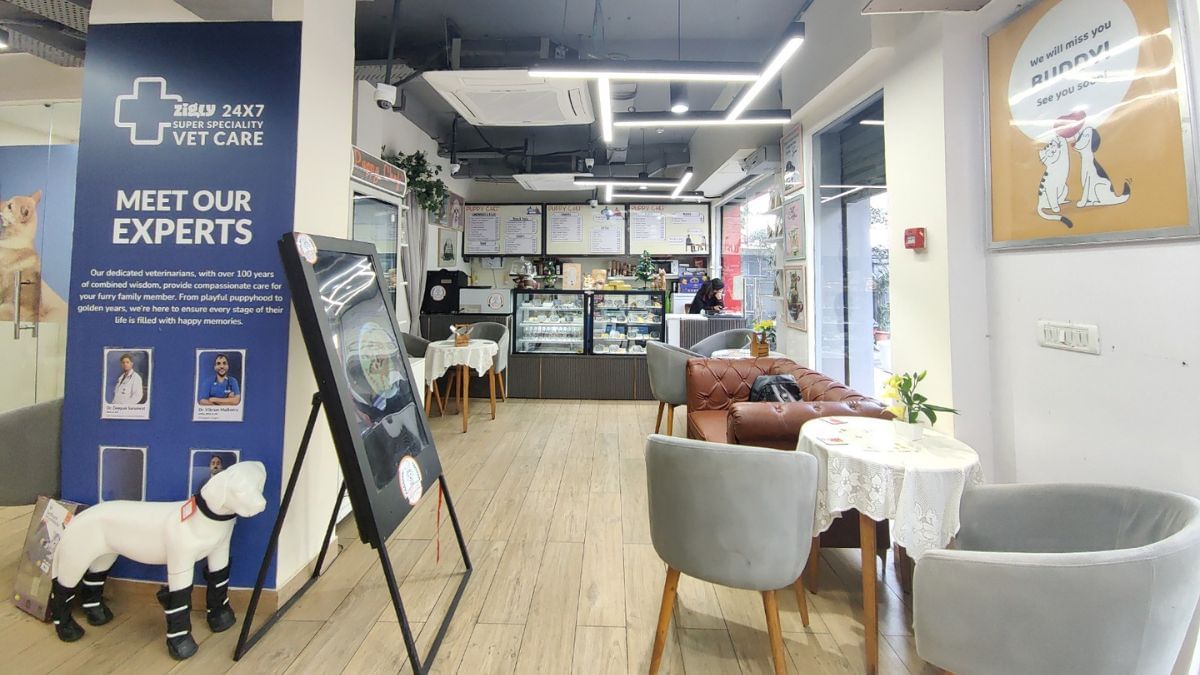
Designed for urban pet owners, Zigly offers a seamless and comprehensive experience, including pet cafés, blending convenience with premium services offered 24×7. According to Pankaj Poddar, CEO of Zigly, it is a “complete pet care ecosystem” and training is also available in some of their locations. They have three 24×7 centres—in Kailash Colony, Janakpuri and Chandigarh Sector 35.
Poddar said, the Indian pet care industry, though still in its nascent stages, is set for exponential growth, particularly as family sizes continue to shrink. “We expect the industry to grow significantly. From today’s Rs 7,000-Rs 8,000 crore per year market, it could become a Rs 20,000 crore per year industry by 2030.”
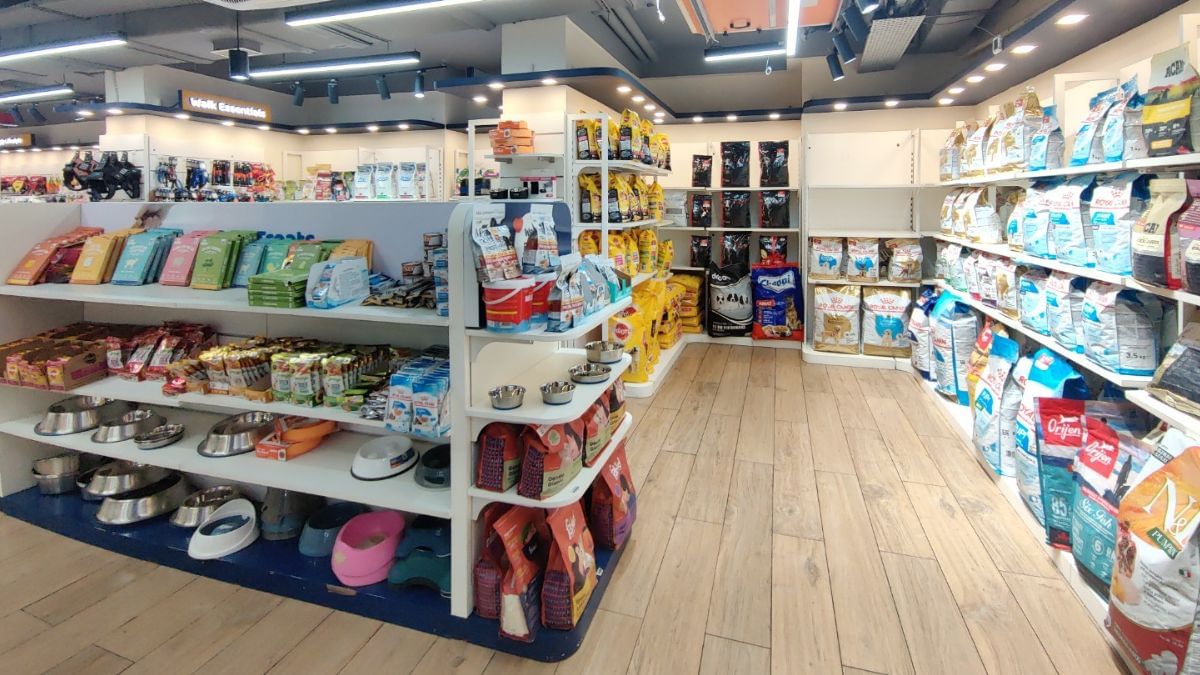
Reflecting on the changing attitudes of pet owners, he noted, “20 years ago, pet parents were reluctant to spend money on their pets. Gradually, they began investing in packed food and basic health needs. Now, the market has matured to the point where many pet parents are willing to spend Rs 50,000, Rs 40,000, or even a lakh on surgeries for their pets. They genuinely care about their pets’ well-being and want them to live longer.”
He highlighted that this shift is reflected in the increasing lifespan of pets, with many now living up to 15, 17, or even 18 years. “The trend underscores how pets are increasingly regarded as family members, with pet owners more willing than ever to invest in their care, health, and overall longevity.”
Govt veterinary hospitals still behind
As private clinics adopt advanced devices and technology, government veterinary hospitals face significant challenges in catching up. A visit to the NDMC Veterinary Hospital in Moti Bagh revealed stark contrasts. The facility lacked a proper registration desk; instead, pet owners queued outside, clutching small slips of paper with handwritten numbers provided by a staff member. Inside, only one doctor was available per shift, with no separate OPD or dedicated lines for dogs, cats, or exotic pets. The inadequacies extended to infrastructure—an X-ray machine lay broken and gathering dust in a neglected room.
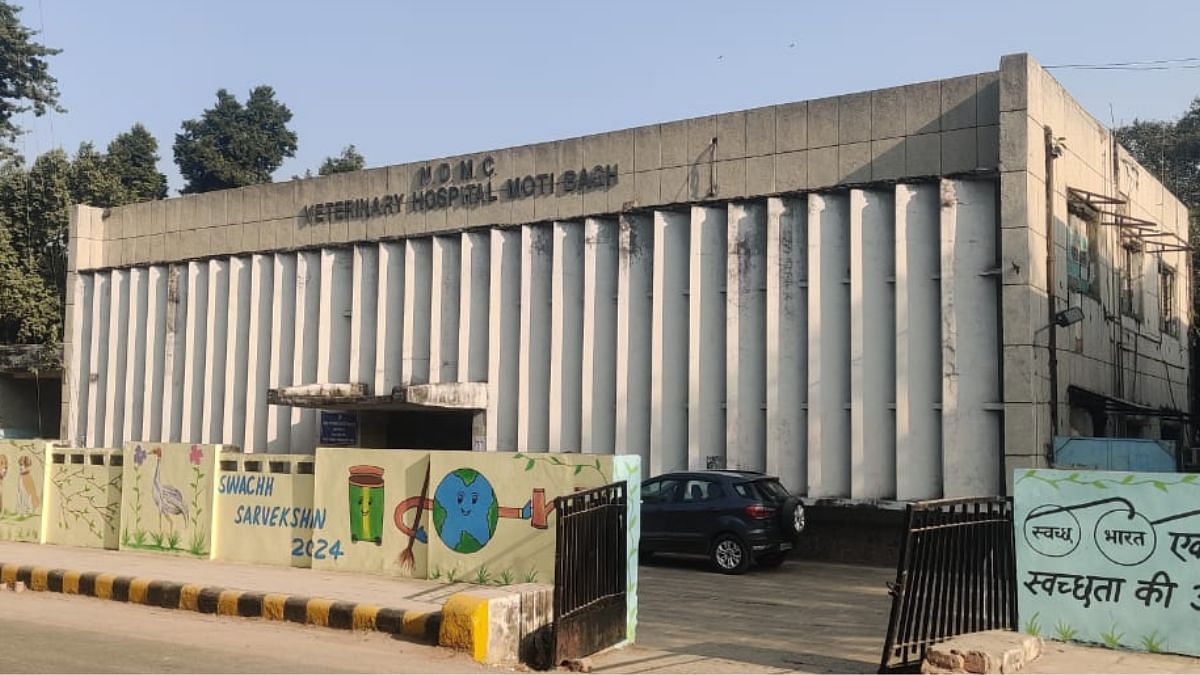
While these government hospitals also cater to large animals, even basic necessities were absent, highlighting the pressing need for improvement in public veterinary care services.
Dr Vijay Kumar, President of the Delhi Veterinary Association and a member of the Veterinary Council of India, acknowledged the challenges faced by government veterinary hospitals. While admitting that public facilities often fall short on resources such as medicines, he emphasised the critical role they play in treating a high volume of patients.
“Government hospitals may lack certain facilities, but they handle 30-40 patients in a single shift. This profession has been neglected for so long, but we are making progress,” he noted.
Dr Kumar also criticised private veterinary clinics, suggesting that many have turned pet care into a “money-making business” that often sidelines stray animals. His concerns were echoed by a pet owner outside the NDMC hospital, who recounted her experience of rescuing an injured stray cat and taking it to a clinic in New Friends Colony. The clinic refused treatment and stated that they did not handle stray or local breeds, “while the clinic was full of pet owners attending to their expensive Persian cats”.
“This is because having a pet has now become a status symbol; the better the breed, the more it reflects on your lifestyle,” she said to ThePrint.
(Edited by Zinnia Ray Chaudhuri)
Also read: Kedarnath pilgrimage is injuring mules—8,000 overworked animals, 1 medical shelter



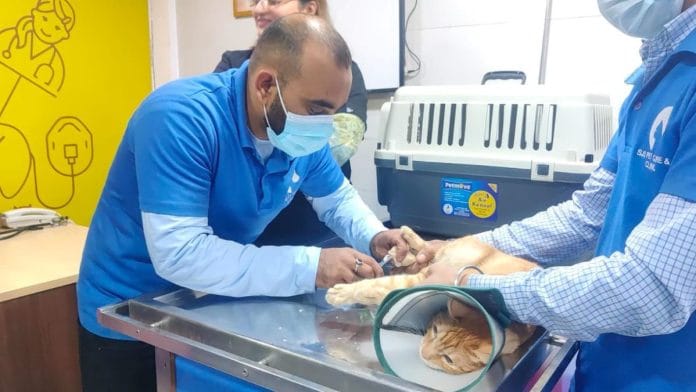



Indians have compassion and kindness for all sorts of animals. But not for their own fellow Indian brethren. A strange nation we are.